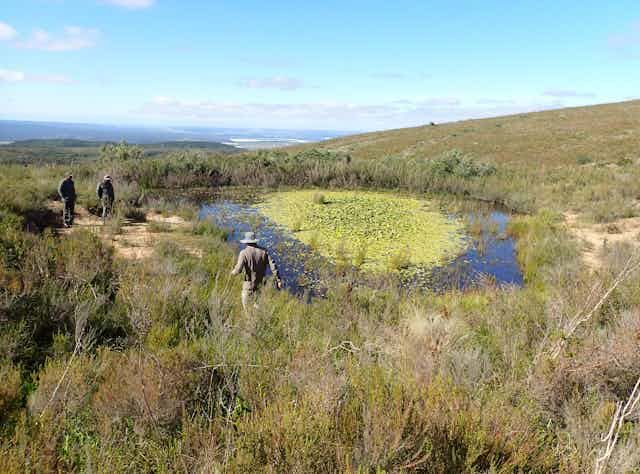The Addo Elephant National Park in South Africa holds a significant historical and ecological importance. Established 94 years ago to protect the last 11 elephants in the Eastern Cape region, the park has since expanded to 155,000 hectares, becoming home to a diverse range of wildlife, including lions, leopards, rhinos, buffalos, and over 600 elephants. The park also boasts 16 rivers and 437 wetlands, making it a crucial ecosystem in the region.
Recently, freshwater scientists Nancy Job and Dirk Roux collaborated on a groundbreaking project to inventory the park’s rivers and wetlands. This initiative, a joint effort between the South African National Parks and the South African National Biodiversity Institute, aimed to document and understand the various types of wetlands present in the park. Through field surveys and close collaboration with park staff, the team uncovered a remarkable diversity of landscapes, ranging from arid rocky mountains to coastal dune-slack wetlands.
The inventory revealed previously undocumented wetlands, such as hidden springs in forested gorges and depression wetlands within thick vegetation areas. These findings underscore the importance of monitoring and conserving wetlands, which are among the most threatened ecosystems in the country. By cataloging the wetlands, the park is better equipped to manage and protect these vital habitats for the future.
The significance of the Addo Elephant National Park wetlands extends beyond their ecological value. They serve as critical water sources and habitats for wildlife and people, especially in times of drought or low rainfall. However, these wetlands face numerous threats, including habitat degradation, invasive species, and human activities such as farming and land use changes.
As climate change exacerbates these challenges, it is crucial to monitor the wetlands’ health and resilience. The newly established inventory provides a baseline for tracking changes in the wetlands over time, particularly in response to climate variability. By understanding the impacts of climate change on water resources and ecosystems, conservation efforts can be tailored to protect the wetlands and the species that depend on them.
In conclusion, the Addo Elephant National Park wetlands represent a vital ecosystem that requires careful management and conservation. Through collaborative research and monitoring efforts, scientists and park officials can work together to safeguard these valuable habitats for future generations. By raising awareness about the importance of wetlands and implementing sustainable conservation practices, the park can continue to thrive as a haven for wildlife and a source of ecological diversity in South Africa.




